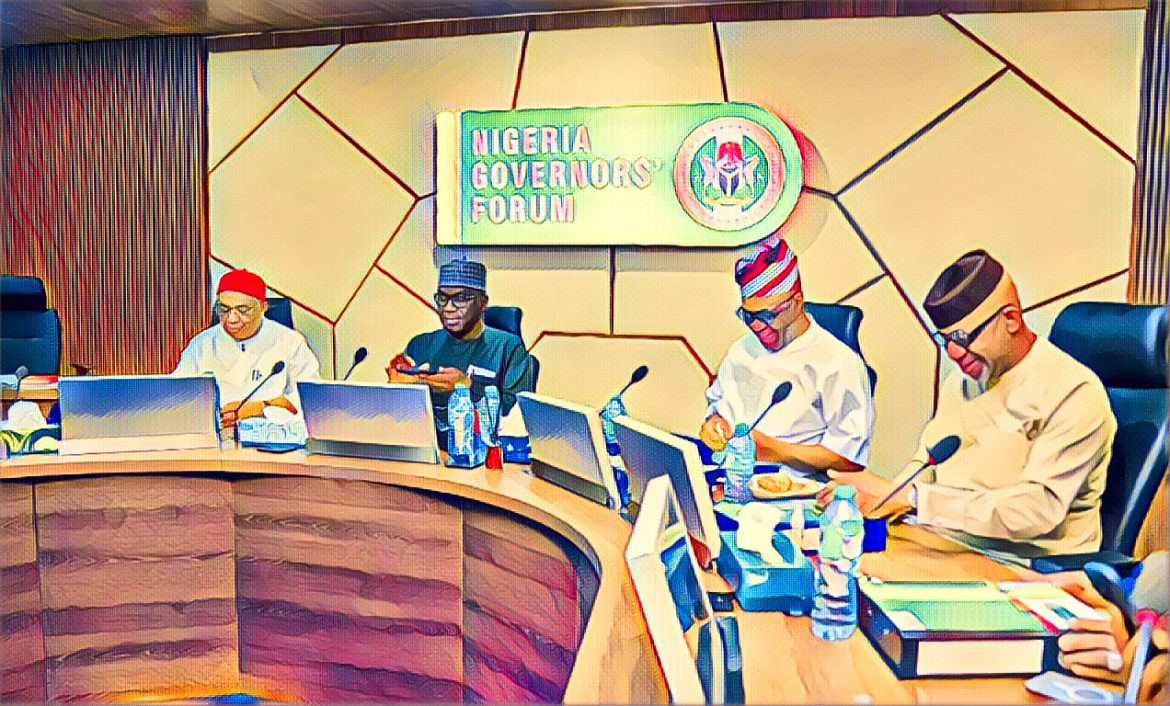Key Points
-
The intelligence sharing initiative Nigeria links governors with the DSS.
-
The intelligence sharing initiative Nigeria targets violent extremism and community unrest.
-
The intelligence sharing initiative Nigeria strengthens security coordination nationwide.
The Department of State Services (DSS) and Nigeria’s state governors have officially agreed to expand a new intelligence-sharing program to help stop the rise of violent extremism, kidnapping, and banditry across the country.
After a private meeting of the Nigeria Governors’ Forum (NGF) in Abuja, the Director-General of the DSS, Adeola Ajayi, told the governors about new threats to national security and the agency’s plan to improve cooperation at the subnational level.
The communique, which was signed by AbdulRahman AbdulRazaq, the chairman of the NGF and the governor of Kwara State, said that the governors were still committed to “deepening intelligence sharing and cooperation with federal security agencies to improve peace and stability across Nigeria.”
Governors and the DSS agree on security priorities
As part of the intelligence sharing initiative Nigeria, the DSS will work closely with state governments to make sure that data is shared more easily and that efforts to fight terrorism, communal violence, and economic crimes are better coordinated.
Every state will choose a liaison officer who will be in charge of sending the DSS real-time intelligence updates.
After the meeting, Lagos State Governor Babajide Sanwo-Olu said that the initiative shows a national shift towards intelligence-led security operations. “We can’t keep working alone when criminals are crossing state lines.” He said, “This cooperation is long overdue and necessary.”
A critical response to growing insecurity
Nigeria still has security problems, such as banditry in the North West, separatist tensions in the South East, and fights between farmers and herders in the Middle Belt.
The Nigeria intelligence sharing initiative aims to close the information gap between state-level actors and national intelligence agencies, which has often made it take longer to respond.
Ajayi’s DSS recently found out that extremist groups were planning to attack important communities in Kogi, Niger, and Plateau states. Officials said this shows how important it is to build an intelligence ecosystem that lets for quicker, more coordinated countermeasures.
Security experts, like former DSS officer Mike Ejiofor, have been saying for a long time that Nigeria’s counterterrorism efforts are hurt by broken intelligence networks. Ejiofor said, “If done right, this move can stop duplication and help governors see threats coming and stop them before they get worse.”
Problems with implementation and what to do next
The NGF said it would review progress and improve intelligence protocols every three months. States have also been told to set up local security coordination centres that work with DSS operations.
Some governors, however, privately expressed worry about funding gaps, poor technology, and the need for legal frameworks to protect sensitive data that agencies share. Analysts also warn that political interference could make the initiative less effective if it isn’t stopped.
Even with these problems, the Nigeria intelligence sharing initiative is a rare example of agreement between federal and state governments. For the DSS, it’s a chance to update Nigeria’s intelligence system. For governors, it’s a chance to get back control over how safe their areas are.
If fully put into action, the initiative could mark a turning point in Nigeria’s long battle to stabilise its regions by bringing together intelligence, coordination, and quick action in a way that the country’s broken security system has never been able to do.


